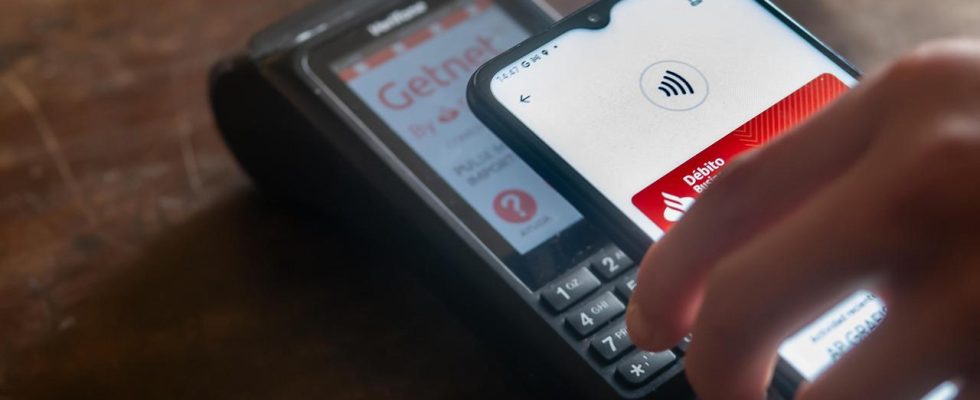According to EU plans, the euro will also be available as “digital cash” in a few years. But electronic payment transactions have long been firmly established. What are the advantages of the digital euro?
Cash stays – the European Central Bank and the EU Commission often emphasize that Europe’s citizens will continue to be able to pay with coins and notes in the future. The digital euro is to be added as a supplement, but not to replace cash.
“You get more choice,” says Commissioner Mairead McGuiness. “We’re going to be able to do digitally what we do with cash today and it’s important to give people that ability. It’s not like credit cards. We’re talking about putting our cash in a digital format and allowing us to use cash to be used digitally.”
Payments also offline
Brussels and Frankfurt believe that in a digital economy, this is the next step that is needed – offering digital payments as an alternative to existing payment service providers.
Consumers should be able to pay anywhere in the euro area with the digital euro free of charge, for example using a digital wallet or smartphone. However, platforms such as PayPal or ApplePay also do this. In addition, payments with the digital euro should also be possible without an internet connection.
In doing so, users would reveal less personal data, explains Commissioner McGuiness: “This is not a Big Brother project for online payments with the digital euro. Data protection will be the same as with existing private digital means of payment. For offline payments, the Privacy can be even higher, similar to withdrawing cash from an ATM.”
Much is still unclear
According to Commission Vice President Valdis Dombrovskis, however, many details are still unclear. In his opinion, it is certain that the digital euro will have to hold its own against the virtual currencies of other countries that are developing similar solutions – such as Great Britain, China and the USA.
“More than 100 central banks are working on digital currencies,” says Dombrovskis, “and the euro, as the second most used currency in the world, cannot be left behind.”
The digital euro is to become legal tender alongside euro coins and banknotes. As a rule, retailers would have to accept the digital euro, at the checkout and online.
Banks should not be bypassed
To make money laundering more difficult, the Commission is proposing caps on holding digital euros and making offline payments. She leaves the amount open. The ECB is trying to allay concerns from German banks and savings banks that it is competing with them in payment transactions. According to the Commission’s draft, banks and payment service providers should bring the digital euro to citizens and companies.
“We want to keep the role of banks and prevent the digital euro from causing banks to lose deposits because that would pose financial stability risks,” says McGuiness.
Is there a lack of acceptance?
The European Central Bank wants to decide in autumn whether to push ahead with work on the digital euro. If so, he could come in three years at the earliest. Three quarters of Germans are skeptical about the euro as a virtual common currency and, according to a survey commissioned by the Association of German Banks (BdB), do not consider it necessary.
The finance expert of the European SPD, Joachim Schuster, sees the Brussels proposal as an opportunity to discuss important issues. The CSU MEP Markus Ferber warns that the digital euro will have an acceptance problem if people do not see its added value.

